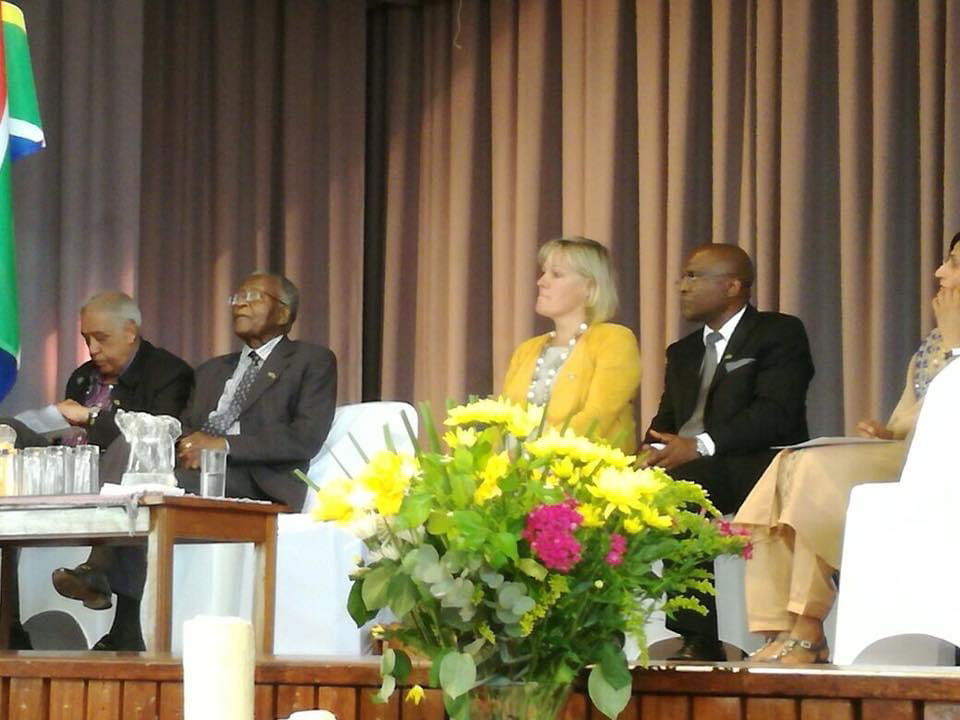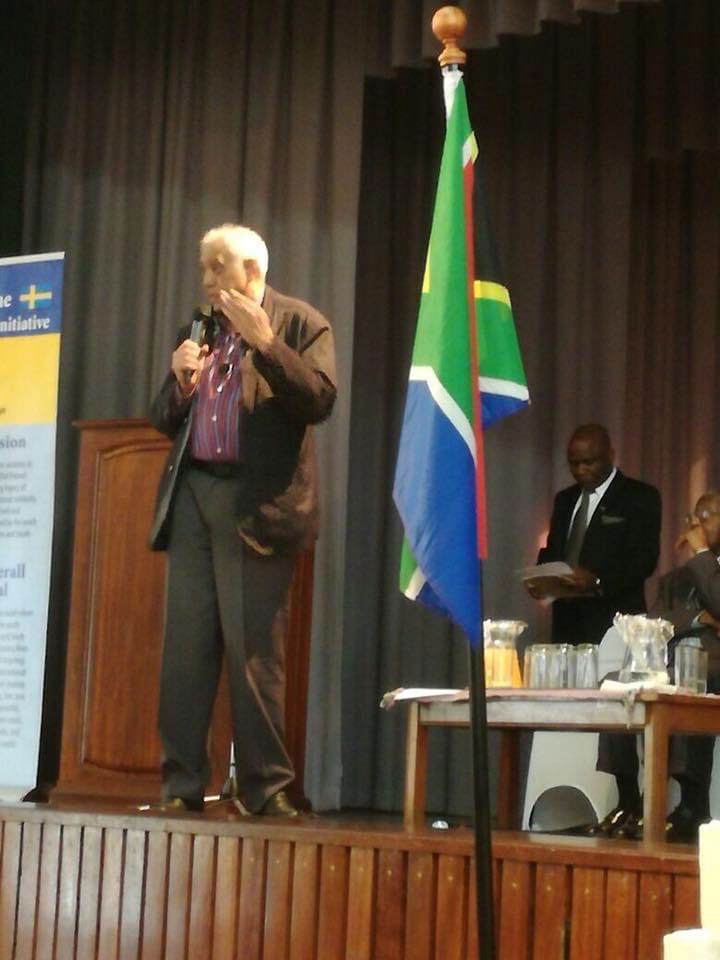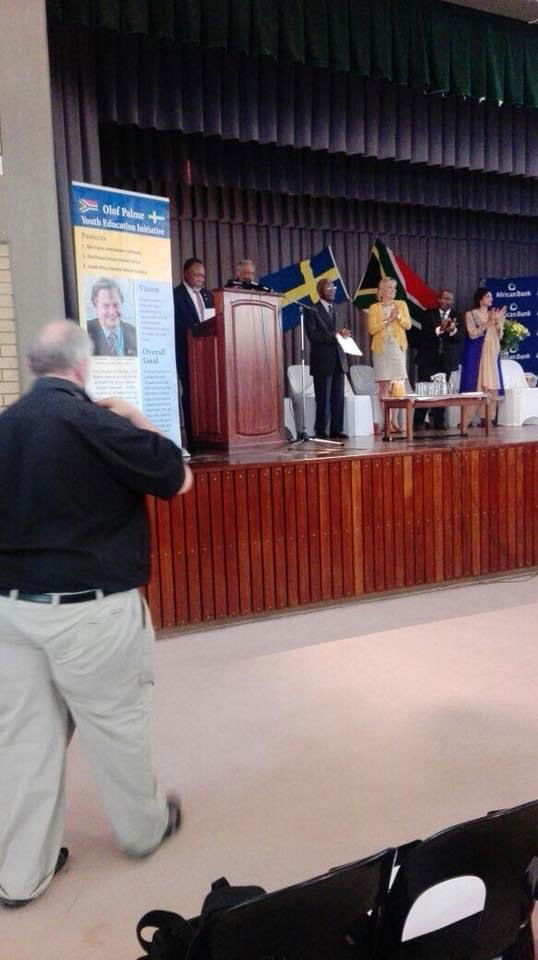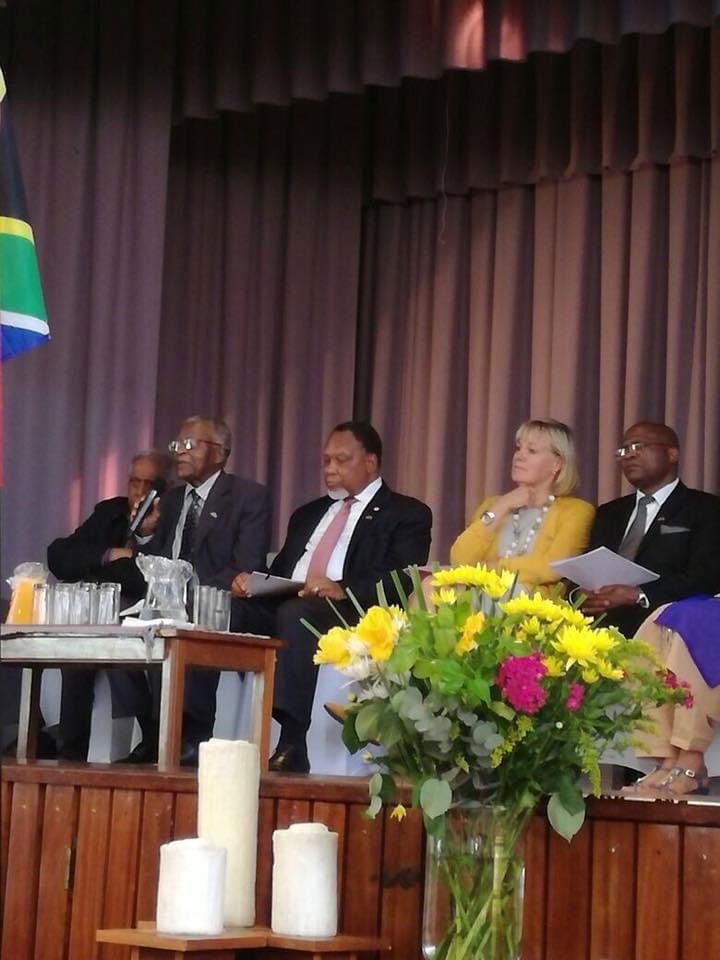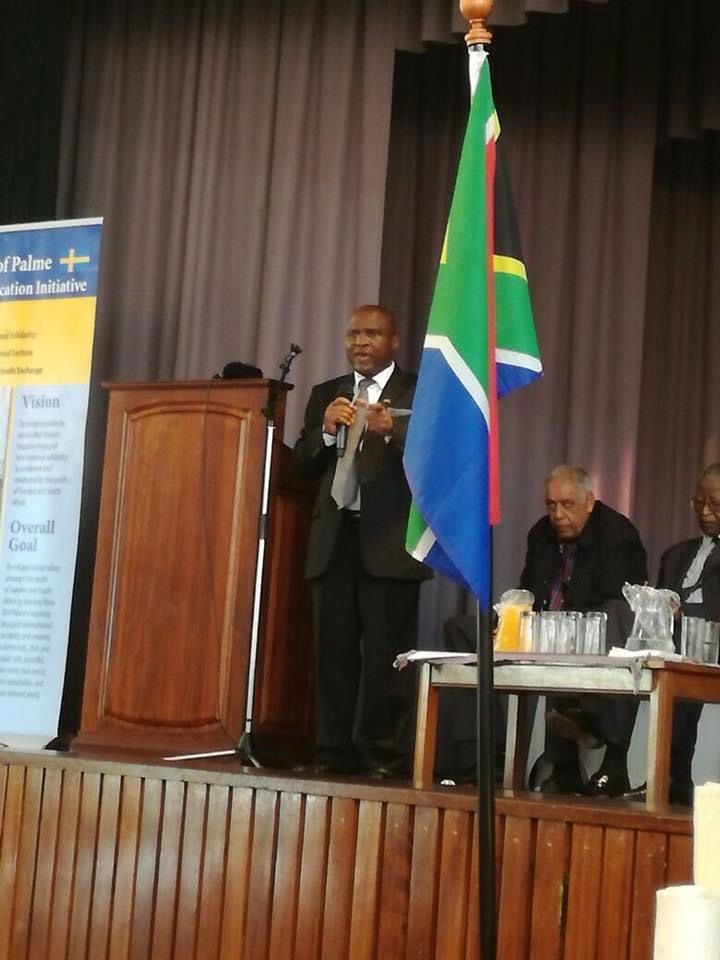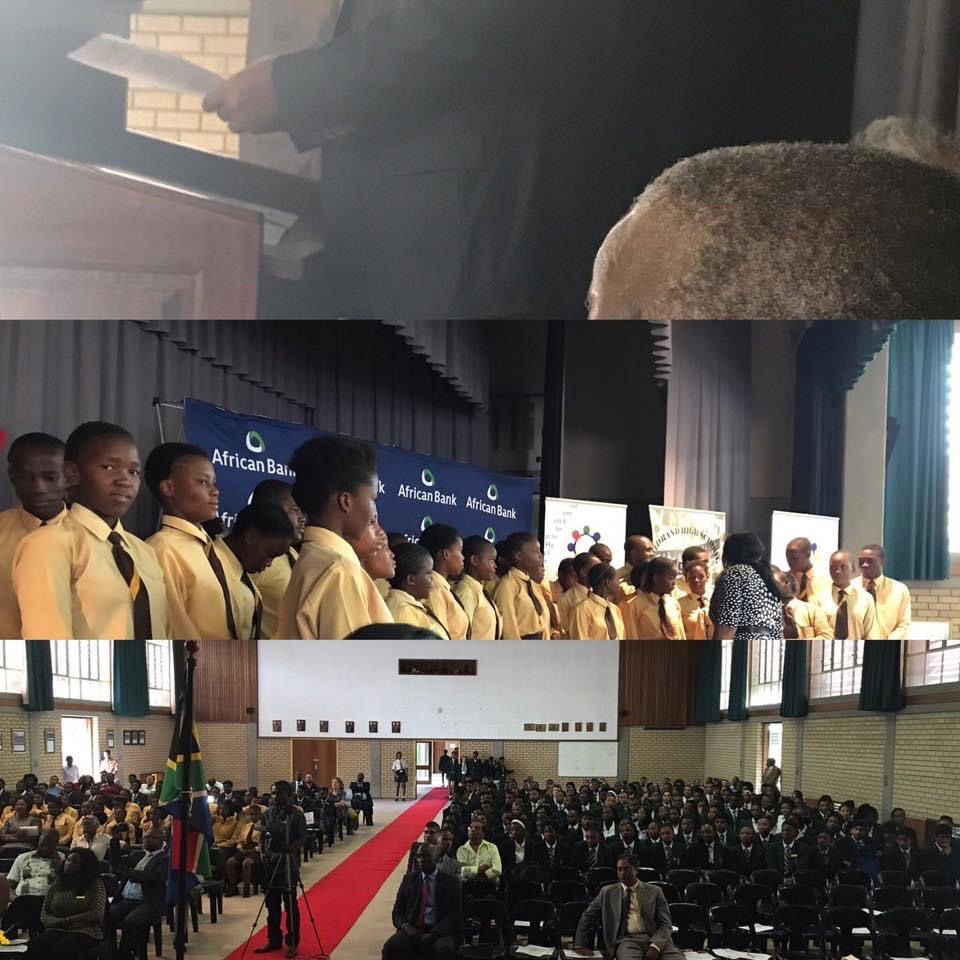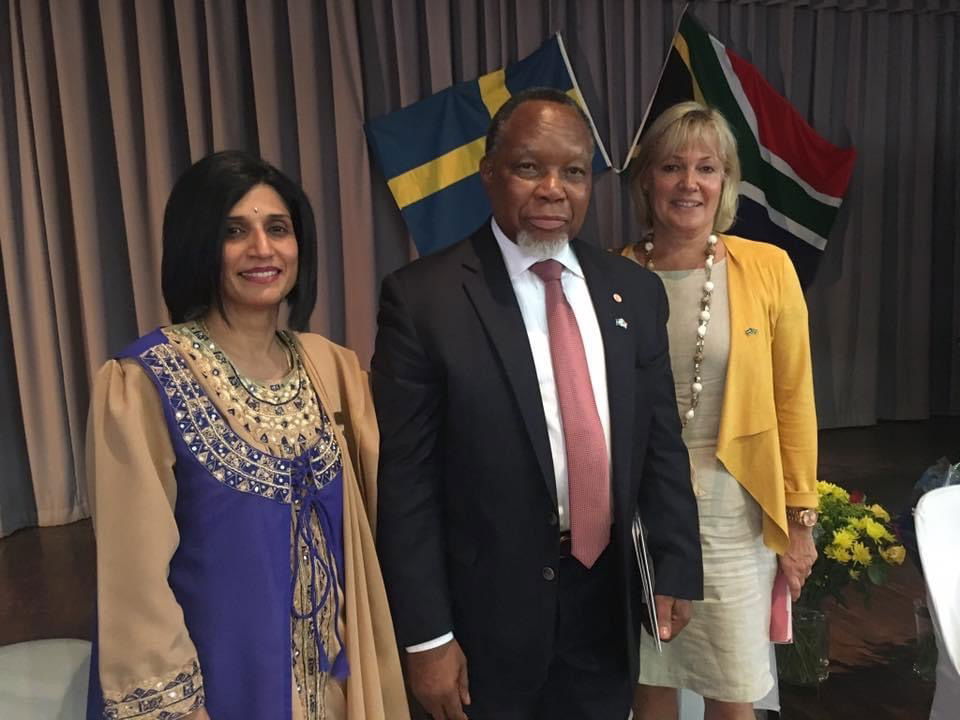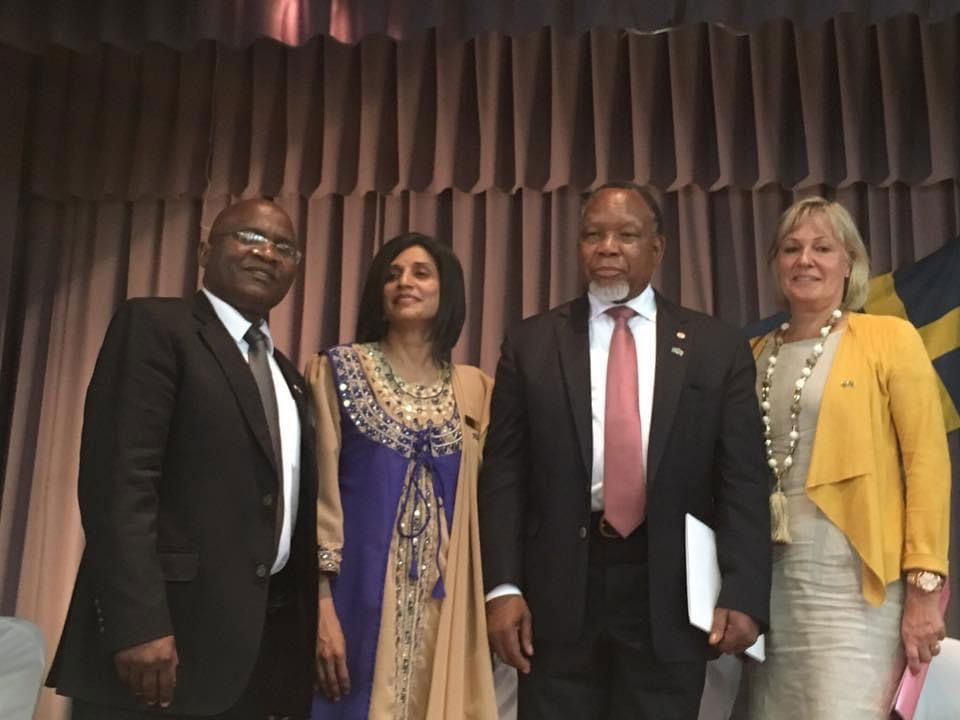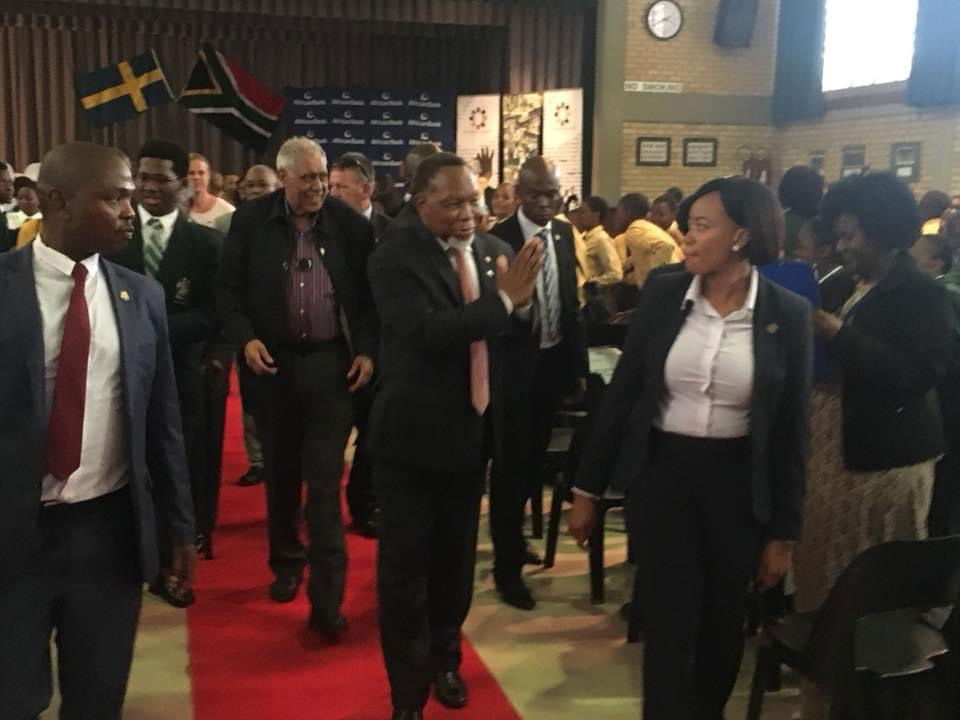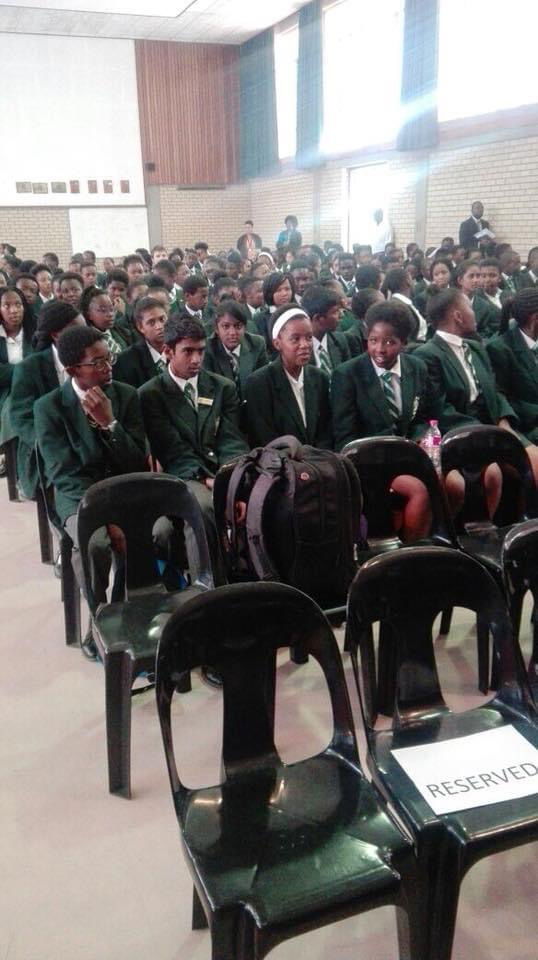Olof Palme Peace Institute

About
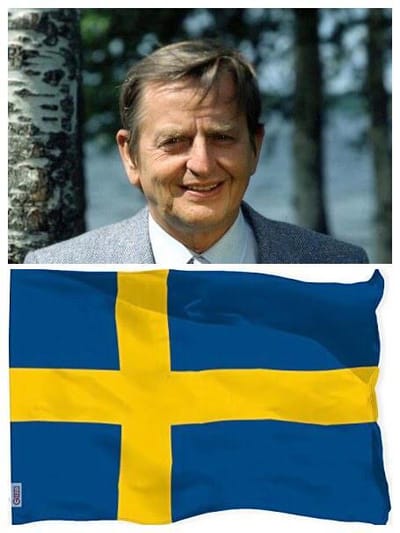
To ensure that Olof Palme's legacy of peace continues, OPPI was launched at Midrand High School in South Africa on 20 October 2017 by His Excellency Mr Kgalema Motlanthe, Patron of the Kgalema Motlanthe Foundation and former President of South Africa, under the name "Olof Palme Youth Education Initiative." OPPI promotes Olof Palme's legacy of peace through educational initiatives, awareness campaigns and research aimed at creating greater understanding and positive change within communities. It is important to know that peace is an essential component of Africa's development.
Throughout his time as Swedish Prime Minister, Olof Palme embodied Sweden's strong anti-colonial and anti-apartheid stance. In this respect, he became a driving force in the process of formulating Sweden's policy on international solidarity, through which all spheres of Swedish society were mobilised to support the liberation movements in Southern Africa, in particular the African National Congress (ANC) in South Africa in the struggle against apartheid. This policy enabled Sweden to become the first Western country to support the struggle against apartheid. We should remember that Olof Palme's last international speech against apartheid took place at the Swedish People's Parliament on 21 February 1986, 7 days before his assassination.
Olof Palme was a true guardian of the Ubuntu philosophy: "I am my brother's keeper! I am my sister's keeper! He believed that his humanity meant living for others, the oppressed, who lived or are still living in unspeakable man-made circumstances. He was a servant-leader and global icon of peace whose assassination deprived the world of a champion of international solidarity. The people were at the centre of Olof Palme's vision of life, "People First." He believed that he was nothing without the people he loved so much.
"The People First philosophy" led him to sacrifice his life for others, the people of the world of different origins. He was committed to a just struggle to restore to the people of the world their human dignity and respect for their right to exist in their countries based on the principles of the rule of law, human rights, respect, equality and justice.
Olof Palme was a true campaigner for peace, and he feared nothing, not even death in his path, that might disturb him in achieving the goal for which he was born. He was an educator and an inspiration of all time.
It should be noted that the name "Olof Palme Youth Education Initiative" has evolved over time to become "Olof Palme Education Programme" and now "Olof Palme Peace Institute", as it was felt important to include the word "peace" in the name of the organisation to show how deeply the concept of peace was embedded in Olof Palme's life.
Palmeist
It is a fact that peace has no colour, so it doesn't matter who talks about it. In this respect, one does not see the colour of Olof Palme, as long as peace becomes a source of happiness and development for people. This justifies the allegiance of anyone to Olof Palme, because a Palmeist owes his/her existence to peace, the source of a better life for all people; a source for which Olof Palme sacrificed his life for others, the downtrodden of the world. This is where it becomes very relevant to know and learn about this white man. It is important to indicate that Olof Palme was a colour-blind man, and as such all people from diverse backgrounds benefited from his efforts.
Given the above, any Palmeist should make sure that Olof Palme's legacy of peace continues to serve as a guide for future generations to foster and strengthen civic pride, responsibility and active citizenship among the African people, especially children and youth, for a better Africa. Olof Palme paid the ultimate price for his commitment to the cause of the world's downtrodden; therefore, nothing on this earth should stop peace ambassadors from fighting to keep Olof Palme's flame of peace burning for the well-being of the world in search of lasting peace.
Programmes
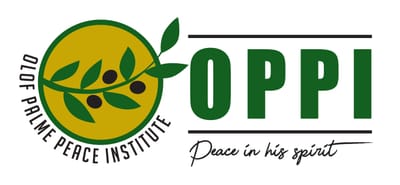
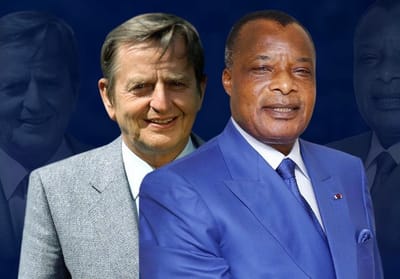
Two leaders from two different countries, one white and the other black, but bound by one conviction, that of peace. They have always believed that peace is not only the absence of violence or war, but also the presence of social solidarity for peace that is the foundation of all sustainable development.
Olof Palme and Denis Sassou N'Guesso are the only two world leaders in power at the time to go down in world history for their major speeches in the same year, 1986, in which they both publicly denounced apartheid and colonialism and reaffirmed their commitment to the struggle against the two most vicious and repressive systems in the history of mankind. Olof Palme gave his speech at the Swedish People's Parliament against Apartheid in Stockholm on 21 February 1986 (seven days before his assassination on 28 February 1986) and Denis Sassou N'Guesso at the Organisation of African Unity in Addis Ababa on 28 July 1986. The world in general and Southern Africa in particular owe these two leaders their due for their leadership and international solidarity in promoting peace in Southern Africa. Both leaders devoted their efforts to placing their countries and their political parties on the world stage to make the case that peace is the only ingredient for sustainable development.
Apartheid and colonialism were the common denominators that drove both leaders to work for peace and freedom for the people of Southern Africa in general, and black South Africans in particular. They understood that leadership is the process by which a leader influences individuals or groups to adopt attitudes and actions in pursuit of a common goal, and they committed themselves to doing so for the peace and well-being of humanity. The two leaders understood that their leadership was based on solidarity, because they believed that they were the keepers of their brothers and sisters in order to advance the cause of a better world for all.
Given the above, the following are OPPI's programmes:
1. The leadership and international solidarity of Olof Palme and Denis Sassou-N'Guesso for peace in Southern Africa
Olof Palme lived and breathed international solidarity, a societal attribute that helped him become an exceptional leader with a big heart for the world's downtrodden. He might have known the risks associated with his belief in peace and his firm stance against the world's oppressive regimes; nevertheless, he continued to ensure that nothing deterred him from serving the oppressed peoples of the world. He remained true to his ideal of solidarity with the world's downtrodden, an ideal he believed was relevant to bringing eternal peace to the world and for which he was prepared to die.
He waged a war without physical weapons against these evil regimes; his relevant ideals were his real weapons in this respect. It is important to mention that Olof Palme did not just take the side of the oppressed from a distance, but visited some of the following countries in Africa: Algeria, Gambia, Ghana, Guinea-Bissau, Mozambique, Nigeria, Senegal and Zambia. He did this with the intention
to witness firsthand the plight of the poor people, but also to meet with the leaders of these countries in order to reflect on how best they can work together in developing strategies for the total liberation of Africa.
Although Olof Palme never celebrated the signing of the Brazzaville Protocol, as he had already been assassinated on 28 February 1986, the truth is that the Brazzaville Protocol, signed on 13 December 1988, is in fact the culmination of his many years of commitment in the struggle against apartheid and colonialism in Southern Africa. However, he died a martyr because he believed all his life in the peace and freedom of the people. The agents of doom killed his physical body but not his spirit. Be that as it may, his spirit lives on and his legacy of peace will forever be engraved in the process of building a better Southern Africa as long as people continue to believe in peace.
Although his involvement in the struggle against apartheid dates back to the early 1980s, Denis Sassou N'Guesso's leadership and international solidarity became more apparent and palpable during his tenure as Chairman of the Organisation of African Unity (OAU) from 1986 to 1987 when he:
- First, prioritised the struggle against apartheid and its abolition, influencing the OAU to launch the Africa Fund. This fund mobilised the financial and material resources needed to enable black South Africans and frontline states to overcome apartheid and colonialism.
- Secondly, organised an international symposium of writers against apartheid in Brazzaville on 25 May 1987, on the theme "Writers indict apartheid".
- Thirdly, developed a diplomatic and solidarity strategy which took him to capitals such as Paris, New Delhi, Beijing, Berlin, London, Washington D.C., Moscow, Oslo and Stockholm to seek support for the struggle against apartheid.
Denis Sassou N'Guesso also urged his government and the Congolese people from all walks of life to send their humble financial and material contributions to support black South Africans in their struggle against racial inequality and human abuse in South Africa. It is important to mention that Denis Sassou Nguesso is one of the architects of the Brazzaville Protocol. He demonstrated his skills through his multiple interventions during the negotiations when deadlock loomed on the horizon, when the negotiators were heading straight for the wall and when they were at an impasse. He always met with the group that had the most rigid position and always managed to propose a way out to relaunch the negotiations. He would explain to the negotiators what needed to be done, what path to take, what arguments to put forward, what historical facts to highlight, to get things moving again. He guided them on a daily basis. What a great leader of the 20th century!
The signing of the Brazzaville Protocol on 13 December 1988 by the Angolans, Cubans and South Africans in Brazzaville, the capital city of the Republic of Congo, paved the way for:
- The withdrawal of Cuban and South African troops from Angola;
- The implementation of UN Security Council Resolution 435 on Southern Africa, which led to Namibia's independence;
- The end of apartheid;
- The birth of a new South Africa;
- The release of Nelson Mandela.
OPPI will continue to regard the Brazzaville Protocol as an essential tool from which African countries can learn in their quest for long-lasting peace.
2. The Brazzaville Protocol Annual Lecture
The Brazzaville Protocol Annual Lecture aims to educate the people of Africa on the objectives of the Brazzaville Protocol, particularly young people in schools and universities. We believe that this process will enable young people to deepen their understanding of this continental and historical reference work, which is regarded as of great importance in the process of developing a culture of reconciliation and peace throughout the African continent.
The Brazzaville Protocol Annual Lecture will serve as an academic and social platform for preserving the historical richness of the Brazzaville Protocol for the integral development of Mother Africa.
Speeches
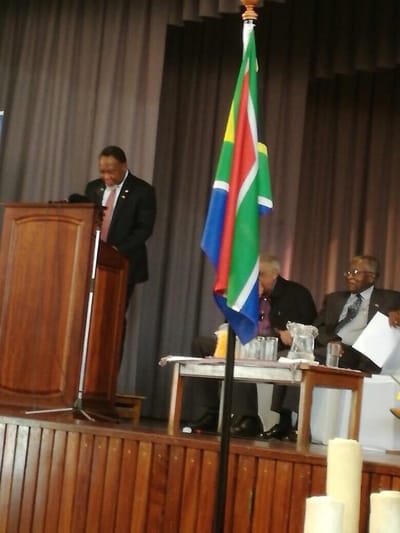
Keynote Address by His Excellency Mr Kgalema Motlanthe, former President of the Republic of South Africa at the launch of the Olof Palme Youth Education Initiative*, Midrand High School, 20 October 2017
Programme Director, Dr Essop Pahad;
Mrs Camantha Reddy, Acting Principal of Midrand High School;
Dr Mukanda Mabonso Mulemfo, Founder of the Olof Palme Youth Education Initiative;
Her Excellency Ms Cecilia Julin, Ambassador of the Royal Kingdom of Sweden to the Republic of South Africa;
Ambassador Billy Modise;
Students of Midrand High School;
Ladies and gentlemen;
Thank you for the kind invitation to address you on this celebratory occasion. To be called to remark on the life and legacy of the great Swedish Statesman, Olof Palme, and consider the role of the youth in moving South Africa forward, is an immense honour and privilege indeed.
As we collectively launch the Olof Palme Youth Education Initiative this afternoon, I am reminded that he ranks amongst those who history will honour, and whose name we ought to inscribe on our consciousness.
Ensuring the longevity of such historical memory is the task of us all, as we seek to make tangible the narratives of our past.
Concerns with memory and legacy are foremost in the minds of South Africans. Our student population have catapulted us into considering both what it means to remember, how we remember and who gets to count among the ranks of those who are remembered.
Memory is central to our evolution as human beings. It is a key part of our education about who we are, and where we come from.
I am reminded, here, of the words of Emeritus Archbishop Desmond Tutu, who once wrote:
“Without memory it would virtually be impossible to learn…We could not learn from experience, because experience is something remembered. I would forever have to start at the beginning, not realising that a hot stove invariably burns the hand placed on it. What I know is what I remember, and that helps to make me who I am.”
These words tell us that we are made by our memory.
Programme Director,
Through the tireless work of Dr Mulemfo, who has repeatedly demonstrated his commitment to ensuring that we do not forget the lives of key historical figures, the initiative joins the ranks of others across the world that memorialise the life and great acts of Olof Palme, and ensure that we both learn and remember. For this I, and many others, thank you, Dr Mulemfo.
The Former Swedish Prime Minister’s name is worthy of such remembrance, as his life was lived in accordance to the highest democratic principles that are deeply connected to the belief in our collective and shared humanity.
He epitomised the values of the African principle of Ubuntu/botho, by demonstrating that although free in his own country, he only thought himself free if those who lived thousands of kilometres away were free as well. In acting on this belief, he connected the path of South Africa and Sweden by being willing to act, journey across borders and commit his voice to ensuring that those who were oppressed and silenced could be heard by the international community.
Olof Palme had the ability to feel very deeply the suffering of the vulnerable and oppressed people in far flung places of the world.
In his contribution to realising a world in which no person would live chained to the shackles of injustice, he stands as a beacon to those of us who share his beliefs and ideas, and who seek to make our world a better place.
We can, as a result, draw many life lessons from his example that should inspire us both to be better as individuals, and to come together as a collective to change the conditions that so many South Africans find themselves in.
All of you who are gathered here today stand as the benefactors of this initiative, and because of the reality of our immediate circumstances today, I have framed my discussion to address you, the youth of our country, on your duty as a South African citizen and the importance of holding onto your dreams during difficult times.
As you have reached the senior ranks of high school, I am sure that many of you find yourselves both wondering about and planning for your future. As you do this, you are perhaps thinking of going out to work, attending university, considering moving provinces, countries or continents, assisting your parents and family, and fulfilling the dreams that occupy your thoughts at night.
It is important to hold onto these dreams, even when obstacles emerge and appear to threaten your ambitions and goals, and seek to turn them to dust.
Indeed the obstacles that appeared before me, at your age, were large and powerful. The apartheid regime sought to rob us of our destiny; rid us of our ambition and convince the black population of South Africa of a status as secondary citizens in our own country.
Growing up, we had to contend with the realities of Bantu education, a system that segregated our schools and was designed to offer us a lower class of education and prepare us for low-ranking jobs.
Such a system was designed to abbreviate our dreams and impose limits on who we saw ourselves as and dreamed of becoming.
As young people, we became actively engaged in the struggle against apartheid as we sought to change our circumstances – and refused to believe the lie that some are better than others simply because of their skin colour.
Our struggle succeeded not because of individual actions, but because of unity. This unity was between South Africans and Africans of all backgrounds, and international citizens who refused to stand by and bear witness to the inhumane conditions that defined our daily lives.
Such unity is a central tenet of Olof Palme’s life – as he worked with us in solidarity, on our journey to end the apartheid regime.
Speaking to the Swedish Parliament, he once said:
‘It is by taking joint responsibility that we can contribute towards abolishing the apartheid system. This system can live on because it gets support from outside. If the support is pulled away and turned into resistance, apartheid cannot endure. If the world decides to abolish apartheid, apartheid will disappear.’
Olof Palme demonstrated that we are responsible for not just ourselves, but also for the greater human society that we live in.
As Oliver Tambo noted:
“Our own people will always remember Olof Palme as one of us, an unswerving opponent of the apartheid system, one who took sides by supporting the oppressed and our organisation, the African National Congress”.
The close friendship and affinity between Oliver Tambo and Olof Palme was one that reflected their shared values – they were two of a kind, connected by their commitment to the highest of human ideals. No doubt, this influenced the stance that Olof Palme took on apartheid’s injustices.
With the South Africa-Sweden Schools Exchange Project that is incorporated as a part of this initiative, perhaps you will form similar friendships and bonds that will stand the test of time, influencing your thoughts, values and actions. Indeed, this is my sincere hope.
With the examples of Olof Palme and OR Tambo in mind, we should continually strive to create a better society than the one that we have inherited, seeking to change our condition and with the knowledge that we are building a better world for those who will come after us, bearing in mind that we are also responsible for those outside our borders – as Olof Palme’s legacy instructs us.
We share the destiny of other African people, and as a result xenophobia should not be allowed in our communities – since everyone is a stranger somewhere.
The respected philosopher Frantz Fanon once said: ‘every generation must discover its mission, and fulfil it or betray it’. Collectively, as the South African youth, you are tasked with taking us further than the freedom that we have brought you to, and discovering the mission and struggles of your lifetime.
Many South Africans, including perhaps some of you, continue to live under conditions that are undignified, violent and unjust. These conditions have no place within modern societies, yet have persisted in spite of the formal end of the apartheid regime.
While apartheid officially ended in 1994, and we now live in a democratic state, the struggle to end the legacy of apartheid continues as many of its features remain embedded in South African life. Poverty, unemployment, starvation, gender violence, against women and children and many other social ills are the regrettable fact of our reality – they build on the convergence of historical injustices of the past and the current inefficiency, greed and corruption which are a stain on the present.
There will always be new struggles to take up in the fight for a freer and more equal society.
Olof Palme was a symbol of all the democratic values that we continue to fight for and uphold in our society: unity, democracy, non-racialism, non-sexism, equality, justice and peace. His life serves as a reminder that we should never rest on our laurels, and continue to fight for a better reality.
You can choose to stand on the shoulders of the remarkable men and women who transformed our societies and act to change our world. The power of that choice rests on your own shoulders. You can make the work of Olof Palme and Oliver Tambo your own.
In doing this, there are many questions that you will have to ask yourselves, should you choose this route. These are questions about your beliefs, values, ideas, hopes, dreams and about the person that you want to become.
Life is not a destination, but a journey – that requires you to think about the endpoint that you hope for. Having a vision for where you want to be in life is crucial to your young imaginations. You are bigger than where you are right now. You are greater than this moment. You are capable of anything. Your today does not define your tomorrow.
I hope that you will be inspired to choose the most moral and ethical route, in spite of the fact that this often proves more difficult than the easier paths. I hope that you will choose to change your immediate circumstances through education, rather than accept the facts of your reality.
You stand as the inheritors of South Africa and the world-at-large. In recognising this, realise that your age is no signal of any kind of weakness or inability to affect the country that you live in, and to bring about change in our society.
To quote from 1 Timothy 4:12:
‘Don’t let anyone look down on you because you are young, but set an example for the believers in speech, in conduct, in love, in faith and in purity’.
In setting this example, the South African Constitution grants you various rights, accompanied by responsibilities.
To assist you on this journey, the Olof Palme Youth Education Initiative is committed to your enrichment, education, success and development.
As I conclude, I would like to leave you with the words of John Still to remind us that:
“The memories of men are too frail a thread to hang
history from”.
The struggle we face today is the struggle against forgetting. We all have the responsibility to ensure that we do not allow the rich lessons from our past to fade into historical oblivion.
Thank you.
[Olof Palme Youth Education Initiative became Olof Palme Peace Institute in February 2023]
Events
No event planned for the moment.
Contact
- 179 Marelu Street, Six Fountains Residential Estate, South Africa

